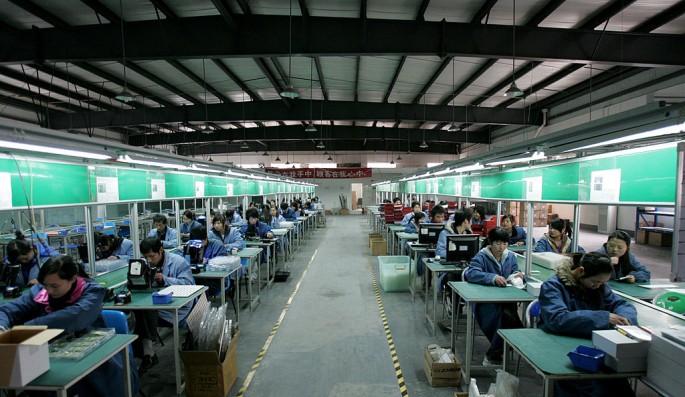China’s factory workers are struggling to survive as the country sees better profit in replacing human laborers with robots amid the economic slowdown.
An article from Bloomberg narrated the difficulties of being a factory worker in a city in Guangzhou, China, where just a few years ago, almost every block outside the city center was filled with factories and housing for workers.
Apparently, China has seen an opportunity to lessen production cost and defeat the increasing labor costs by replacing humans with machines, another report from the outlet revealed.
Factory of the World
Guangdong Province was once called the "Factory of the World" because it houses half of China's production and manufacturing establishments.
This has become one of China's economy boosters in the past, especially since international companies like Apple and Samsung saw potential in suppliers from the country like Foxconn.
Unfortunately, even Foxconn already felt the pressure of the slowing Chinese economy, which led its management to decide to go automated, BBC News reported.
In May, Foxconn reduced its employees from 110,000 to 50,000, per a statement from the company's bosses to the South China Morning Post.
"The Foxconn factory has reduced its employee strength from 110,000 to 50,000, thanks to the introduction of robots. It has tasted success in reduction of labor costs," said Xu Yulian, the head of the Kunshan government publicity department.
According to Xu, more companies in China are expected to follow Foxconn's example, noting that 600 other manufacturing firms have similar plans.
Why Factories Turn to Robots
While it may be difficult to let go of trained personnel, many business owners and government officials see the shift to be for a good cause.
In a statement sent to BBC, Foxconn Technology Group said that "many of the manufacturing tasks associated with our operations" required automation but that it does not necessarily mean long-term job losses.
"We are applying robotics engineering and other innovative manufacturing technologies to replace repetitive tasks previously done by employees, and through training, also enable our employees to focus on higher value-added elements in the manufacturing process, such as research and development, process control and quality control," the company said.
Furthermore, Foxconn said it will still harness manpower and combine it with automation, which means they would maintain significant workforce in China.
Unfortunately for the 60,000 who were replaced with robots, the Chinese government promotes automation in factories.
"Empty the cages to welcome better birds," ex-Guangdong Communist Party Chief Wang Yang said, echoing Hu Chunhua's call to "replace humans with robots."
Because of this, companies had no choice but to go automated.
"There's growing pressure along with the rising labor costs and overall production costs," TCL Corp. Chairman and CEO Li Dongsheng told Bloomberg.
This not only made companies lay off people, but it also made some like TCL move out from Guangzhou into more central areas like Wuhan.



























